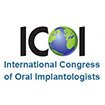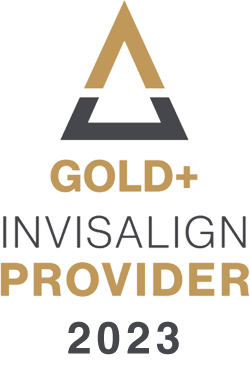Dental Implant-Supported Dentures — Thorndale, PA
Completely Restore Your Smile
Following advanced tooth loss, a traditional, removable denture can be used to replace teeth and ensure your smile confidence. Unfortunately, without the support of tooth roots, your traditional denture will need to rely on suction between the gums and base for support. This can place a great deal of pressure on your gums and supportive bone tissues. Over time, your gum line will change, and you will need to have your denture refitted or a new denture placed. Thankfully, with dental implant-supported dentures in Thorndale, these traditional dentures aren’t your only option anymore!
Dental implant-retained dentures are fully self-supporting just like natural teeth, and they ensure you maintain the maximum amount of healthy gum and bone tissue. This means your implant denture is natural looking, feeling, and functioning, offering long lasting results you’ll always feel confident sharing. If you want to learn more about dental implant-supported dentures from our Thorndale, PA dentist, call to schedule a tooth replacement consultation with the skilled Chester County Dental Arts team. When you visit our Thorndale dental office, we’ll review your treatment options and help you to plan to completely restore your smile.
What Are Dental Implant-Supported Dentures?

Dental implant-retained dentures are crafted much like traditional dentures. A gum-colored base material is molded to fit against the gumline, supporting a full row of replacement teeth. However, rather than relying on the suction created by the snug fit to stay in place like a traditional denture, dental implant-supported dentures rely on four to six dental implant posts that are positioned below the gumline, recreating the healthy, natural root structures of teeth. Depending on your unique situation and preferences, we offer two types of dental implant-retained dentures:
Fixed/Permanent Dental Implant-Supported Dentures
As their name suggests, permanent or fixed dental implant-retained dentures are designed to stay firmly in place 24 hours a day, seven days a week. Only your Thorndale dentist will be able to remove them, meaning you’ll wear your dentures while you eat, sleep, brush, and go about your daily life. Typically, four to six dental implants are needed to hold a fixed implant denture.
Removable Dental Implant-Supported Dentures
Removable dental implant-supported dentures are sometimes called “Snap-On dentures” for obvious reasons. These dentures are also rooted in place with dental implants, but they are attached via clips or ball sockets. This way, a patient can remove them when needed, such as for cleaning. Not only are these ideal for patients who may be more comfortable with this familiar aspect of dentures, but removable dental implant-retained dentures also typically require less jawbone density and fewer dental implants.
The Dental Implant-Supported Denture Procedure

The process of rebuilding your smile with an implant denture is completed over the course of several months. After your initial consultation, we’ll provide preparatory services like tooth extractions or tissue grafts to ensure that you are a good candidate for dental implant-supported dentures. Then, your dental implants are placed into your jawbone via a minor oral surgery. Over the course of several months, the implant posts fuse with the supportive structures in a process called osseointegration. Once the implants have bonded with the bone and gum tissue, you’ll return to our dental office so we can attach abutments to the implants. When the abutments are in place, we’ll design your denture. After we receive the final denture from our lab, you’ll return to the dental office, so we can affix your custom tooth replacement prosthetic.
Am I a Candidate for Dental Implant-Retained Dentures?

Not only are dental implants in Thorndale the best way to replace missing teeth, but practically any healthy adult can be considered a good candidate for them! To be considered a good candidate for dental implant-supported dentures, you’ll need:
- Good overall health
- Great oral health
- Adequate jawbone density
First, it’s important that you’re healthy enough to undergo minor oral surgery. If you have a condition such as diabetes, it’s important that you have it under control to maximize your chances of success. You’ll also need to be free of oral health issues like tooth decay and gum disease, which can threaten the success of your implant denture. If needed, we can help you get your oral health on track with preliminary preparatory procedures.
Finally, it’s important that your jawbone is strong enough to support dental implants. Unfortunately, this can sometimes be a challenge for patients who are missing all their teeth, since jawbone loss naturally occurs after tooth loss. However, different types of dental implant-supported dentures require different levels of jawbone density, and preparatory procedures like bone grafting can help give your jaw the strength it needs to support your new smile. The only way to accurately determine if you’re a good candidate for an implant denture is to come see us for a consultation!
Benefits of Combining Dentures & Dental Implants

There are many benefits of dental implant-retained dentures compared with other tooth replacement options, including:
- Dramatically improved biting force: Traditional dentures are only able to replace about 20% of natural chewing ability, severely limiting your diet. Dental implant-supported dentures restore 70% or more of your chewing range, allowing you to consume all of your favorite foods easily and confidently.
- Reliably long-lasting: A traditional tooth replacement prosthetic needs to be replaced every five to ten years to ensure function, but dental implant-retained dentures have a 90% success rate after 20 years and can last a patient a lifetime with the right care.
- Preservation of the jawbone and facial features: Because the roots of teeth are replaced, an implant denture stimulates blood flow in the jawbone. Not only does this reduce irritation and soreness in the gums, but it prevents jawbone shrinkage and preserves your healthy, youthful facial features.
Caring for Your Dental Implant-Supported Dentures

After your implant denture is in place, you can look forward to a flawlessly functioning smile that lasts for two decades or longer. You can brush your denture just like you would healthy teeth. You should brush at least two times each day, but for best results, we recommend brushing after meals as well. To prevent the buildup of plaque between the gums and denture, you may want to use an air or water flosser. We can provide an antimicrobial oral rinse to reduce the amount of plaque producing oral bacteria and ensure a healthier smile.









